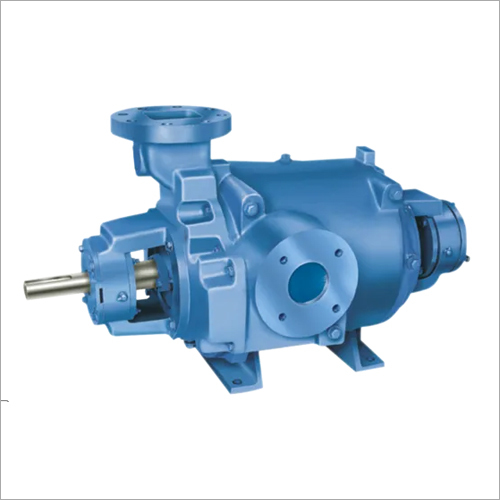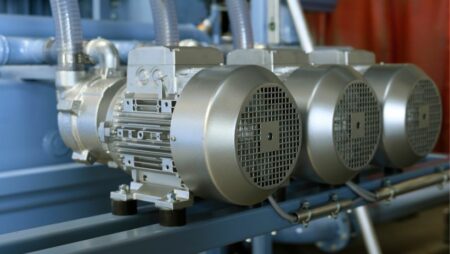产品说明
产品说明
1. Drain pump commonly used in washing machine/air conditioner/ dishwasher and so on.
2. The Drain pump enjoy their high efficiency, low energy consumption,long life and low noise.
3.A variety of pump covers design for customer choice, can also be designed according to customer requirements.
4.Different thickness of the iron core is suitable for all kinds of customers’ requirements.
5.The certification of TUV, UL, CCC
6.Good quality drain pump with low price. If you want drain pump more details , pls don’t hesitate to contact us.
7.The technical parameters depending on the customer’s requirements
| Name | Drain pump |
| Type | Washing machine parts |
| 材料 | Copper/Copper Clad Aluminum/Aluminum |
| 电压 | 110-127V/220-240V |
| 频率 | 50/60Hz |
| Current | 0.2A |
| 电源 | 30-40W |
| Packing | 48PCS/CTN |
Detailed Photos
Main products
公司简介
Workshop
展览
Certifications
常见问题
1 Q: Are you a manufacturer or trading company?
A:We are professional drain pump and motor manufacturer for almost 10 years.
2. Q: What’s your delivery time?
A: 1. The stock samples can be sent to you within 3-5 days by international express.
2. The batch order can be shipped to you in about 25-30 days after order confirmation( by air or by sea).
3 Q: Is it all right to make customer’s own brand name?
A:Yes, we accept OEM.
4 Q: What is your loading port?
A:Xihu (West Lake) Dis. port.
5 Q: What are your payment terms?
A:We can acceptT/T,L/C,DP,.
Any more question.Please contact us without any hesitation.
/* March 10, 2571 17:59:20 */!function(){function s(e,r){var a,o={};try{e&&e.split(“,”).forEach(function(e,t){e&&(a=e.match(/(.*?):(.*)$/))&&1
| 动力 | Electric |
|---|---|
| Rated Voltage: | AC110-127V/ 220-240V |
| Frequence: | 50/60Hz |
| Power(W): | 30-40W |
| Material: | Plastic&Metal |
| Application: | Washing Machine |
| 样本 |
US$ 3/Piece
1 件(最小订单量) | |
|---|
| 定制: |
可用
|
|
|---|

真空泵可用于汽车行业吗?
是的,真空泵广泛应用于汽车行业的各种应用中。下面是详细说明:
汽车行业的一些关键功能和系统都依赖于真空泵。真空泵在增强性能、提高燃油效率和实现各种汽车系统的运行方面发挥着至关重要的作用。以下是真空泵在汽车行业的一些主要应用:
1.制动系统:真空泵通常用于真空辅助制动系统,也称为动力制动。这些系统利用真空压力放大驾驶员施加在制动踏板上的力,使制动更有效、反应更灵敏。真空泵有助于产生助力制动所需的真空,确保制动性能可靠稳定。
2.排放控制系统:真空泵是车辆排放控制系统的组成部分。它们协助废气再循环 (EGR) 阀和蒸发排放控制 (EVAP) 系统等部件的运行。真空泵有助于为这些系统的正常运行创造必要的真空条件,减少有害气体的排放,提高整体环保性能。
3.暖通空调系统:车辆的供暖、通风和空调(HVAC)系统通常使用真空泵来实现各种功能。真空泵可帮助控制真空执行器,从而调节暖通空调系统的方向、温度和气流。它们可确保车辆内部气候控制系统的高效运行和精确控制。
4.涡轮增压器和增压器系统:在以性能为导向的车辆中,涡轮增压器和增压器系统用于提高发动机功率和效率。真空泵在这些系统中的作用是为废气门、排气阀和其他控制机构提供真空压力。这些部件有助于调节增压压力,确保强制感应系统达到最佳性能。
5.燃油输送系统:真空泵用于某些类型的燃油输送系统,如机械燃油泵。这些泵利用真空压力从燃油箱抽取燃油并输送到发动机。虽然机械燃油泵在现代汽车中使用较少,但真空泵在某些特殊应用中仍有使用。
6.发动机管理系统:真空泵用于发动机管理系统的各种功能。它们协助操作真空执行器、真空贮液器和真空传感器等部件。这些部件在发动机性能、排放控制和整个系统功能方面发挥着作用。
7.流体控制系统:真空泵用于汽车内的流体控制系统,如动力转向系统。真空辅助动力转向系统利用真空压力来协助驾驶员转向,从而减少所需的力度。真空泵为动力转向助力提供必要的真空,从而提高操纵性和驾驶舒适性。
8.诊断和测试设备:汽车诊断和测试设备中也使用真空泵。这些泵可产生测试和诊断各种汽车系统(如进气歧管泄漏、制动系统完整性和真空操作部件)所需的真空条件。
值得注意的是,根据具体的汽车应用,可能会使用不同类型的真空泵。汽车行业常用的真空泵技术包括隔膜泵、旋片泵和电动真空泵。
总之,真空泵在汽车工业中应用广泛,从制动系统和排放控制到 HVAC 系统和发动机管理,无所不包。它们有助于提高安全性、燃油效率、环保性能和车辆的整体功能。

How Do Vacuum Pumps Affect the Performance of Vacuum Chambers?
When it comes to the performance of vacuum chambers, vacuum pumps play a critical role. Here’s a detailed explanation:
Vacuum chambers are enclosed spaces designed to create and maintain a low-pressure environment. They are used in various industries and scientific applications, such as manufacturing, research, and material processing. Vacuum pumps are used to evacuate air and other gases from the chamber, creating a vacuum or low-pressure condition. The performance of vacuum chambers is directly influenced by the characteristics and operation of the vacuum pumps used.
Here are some key ways in which vacuum pumps affect the performance of vacuum chambers:
1. Achieving and Maintaining Vacuum Levels: The primary function of vacuum pumps is to create and maintain the desired vacuum level within the chamber. Vacuum pumps remove air and other gases, reducing the pressure inside the chamber. The efficiency and capacity of the vacuum pump determine how quickly the desired vacuum level is achieved and how well it is maintained. High-performance vacuum pumps can rapidly evacuate the chamber and maintain the desired vacuum level even when there are gas leaks or continuous gas production within the chamber.
2. Pumping Speed: The pumping speed of a vacuum pump refers to the volume of gas it can remove from the chamber per unit of time. The pumping speed affects the rate at which the chamber can be evacuated and the time required to achieve the desired vacuum level. A higher pumping speed allows for faster evacuation and shorter cycle times, improving the overall efficiency of the vacuum chamber.
3. Ultimate Vacuum Level: The ultimate vacuum level is the lowest pressure that can be achieved in the chamber. It depends on the design and performance of the vacuum pump. Higher-quality vacuum pumps can achieve lower ultimate vacuum levels, which are important for applications requiring higher levels of vacuum or for processes that are sensitive to residual gases.
4. Leak Detection and Gas Removal: Vacuum pumps can also assist in leak detection and gas removal within the chamber. By continuously evacuating the chamber, any leaks or gas ingress can be identified and addressed promptly. This ensures that the chamber maintains the desired vacuum level and minimizes the presence of contaminants or unwanted gases.
5. Contamination Control: Some vacuum pumps, such as oil-sealed pumps, use lubricating fluids that can introduce contaminants into the chamber. These contaminants may be undesirable for certain applications, such as semiconductor manufacturing or research. Therefore, the choice of vacuum pump and its potential for introducing contaminants should be considered to maintain the required cleanliness and purity of the vacuum chamber.
6. Noise and Vibrations: Vacuum pumps can generate noise and vibrations during operation, which can impact the performance and usability of the vacuum chamber. Excessive noise or vibrations can interfere with delicate experiments, affect the accuracy of measurements, or cause mechanical stress on the chamber components. Selecting vacuum pumps with low noise and vibration levels is important for maintaining optimal chamber performance.
It’s important to note that the specific requirements and performance factors of a vacuum chamber can vary depending on the application. Different types of vacuum pumps, such as rotary vane pumps, dry pumps, or turbomolecular pumps, offer varying capabilities and features that cater to specific needs. The choice of vacuum pump should consider factors such as the desired vacuum level, pumping speed, ultimate vacuum, contamination control, noise and vibration levels, and compatibility with the chamber materials and gases used.
In summary, vacuum pumps have a significant impact on the performance of vacuum chambers. They enable the creation and maintenance of the desired vacuum level, affect the pumping speed and ultimate vacuum achieved, assist in leak detection and gas removal, and influence contamination control. Careful consideration of the vacuum pump selection ensures optimal chamber performance for various applications.

How Do You Choose the Right Size Vacuum Pump for a Specific Application?
Choosing the right size vacuum pump for a specific application involves considering several factors to ensure optimal performance and efficiency. Here’s a detailed explanation:
1. Required Vacuum Level: The first consideration is the desired vacuum level for your application. Different applications have varying vacuum level requirements, ranging from low vacuum to high vacuum or even ultra-high vacuum. Determine the specific vacuum level needed, such as microns of mercury (mmHg) or pascals (Pa), and choose a vacuum pump capable of achieving and maintaining that level.
2. Pumping Speed: The pumping speed, also known as the displacement or flow rate, is the volume of gas a vacuum pump can remove from a system per unit of time. It is typically expressed in liters per second (L/s) or cubic feet per minute (CFM). Consider the required pumping speed for your application, which depends on factors such as the volume of the system, the gas load, and the desired evacuation time.
3. Gas Load and Composition: The type and composition of the gas or vapor being pumped play a significant role in selecting the right vacuum pump. Different pumps have varying capabilities and compatibilities with specific gases. Some pumps may be suitable for pumping only non-reactive gases, while others can handle corrosive gases or vapors. Consider the gas load and its potential impact on the pump’s performance and materials of construction.
4. Backing Pump Requirements: In some applications, a vacuum pump may require a backing pump to reach and maintain the desired vacuum level. A backing pump provides a rough vacuum, which is then further processed by the primary vacuum pump. Consider whether your application requires a backing pump and ensure compatibility and proper sizing between the primary pump and the backing pump.
5. System Leakage: Evaluate the potential leakage in your system. If your system has significant leakage, you may need a vacuum pump with a higher pumping speed to compensate for the continuous influx of gas. Additionally, consider the impact of leakage on the required vacuum level and the pump’s ability to maintain it.
6. Power Requirements and Operating Cost: Consider the power requirements of the vacuum pump and ensure that your facility can provide the necessary electrical supply. Additionally, assess the operating cost, including energy consumption and maintenance requirements, to choose a pump that aligns with your budget and operational considerations.
7. Size and Space Constraints: Take into account the physical size of the vacuum pump and whether it can fit within the available space in your facility. Consider factors such as pump dimensions, weight, and the need for any additional accessories or support equipment.
8. Manufacturer’s Recommendations and Expert Advice: Consult the manufacturer’s specifications, guidelines, and recommendations for selecting the right pump for your specific application. Additionally, seek expert advice from vacuum pump specialists or engineers who can provide insights based on their experience and knowledge.
By considering these factors and evaluating the specific requirements of your application, you can select the right size vacuum pump that meets the desired vacuum level, pumping speed, gas compatibility, and other essential criteria. Choosing the appropriate vacuum pump ensures efficient operation, optimal performance, and longevity for your application.


editor by CX 2024-02-26